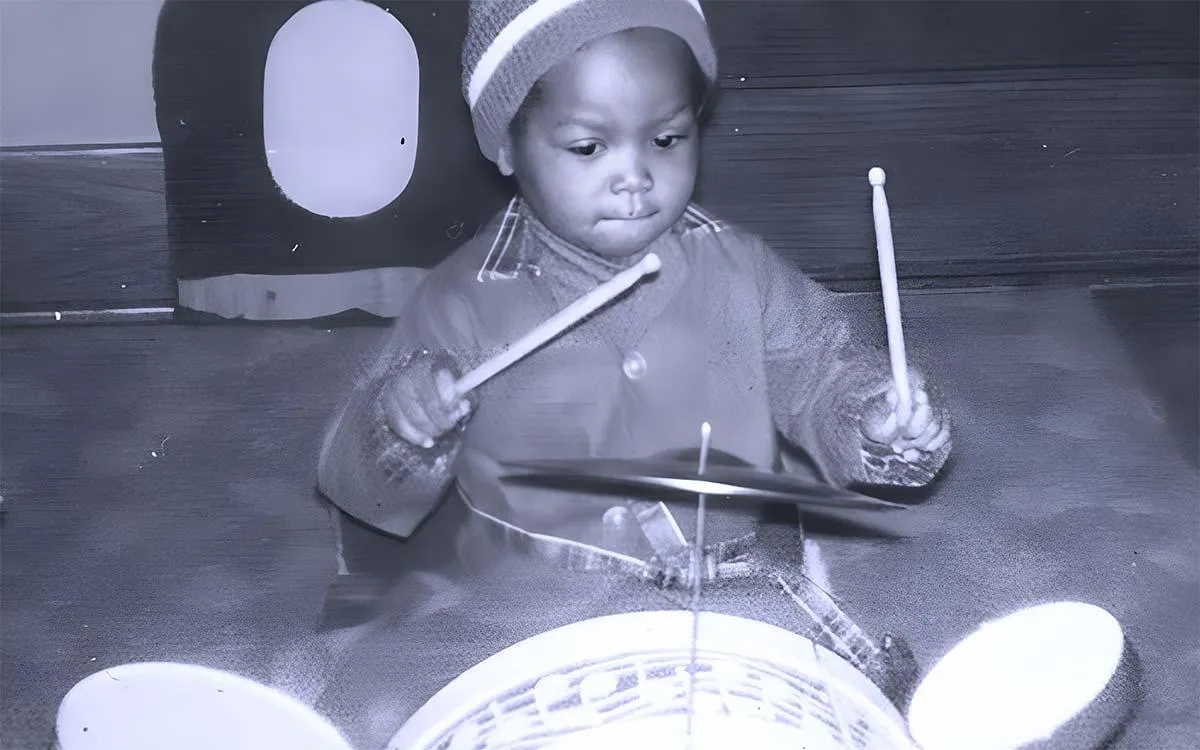Lil' Drummaboy Recordings' Blog
25 Years of Excellence
A Lifelong Passion for Music: The Story of Lil’ Drummaboy Recordings
by illiad | Jan 6, 2025

You’ve heard the advice. Go to school. Get a degree. Find a good job. While it’s based on reality (an education is critical for earning a good living), it’s also based on the notion that college is the best path for everyone.
That’s not always true.
Consider Samori Coles and Lil’ Drummaboy Recordings as case in point.
What’s Lil’ Drummaboy All About?
Before we discuss Coles’ climb from educated financial analyst to recording studio owner and audio engineer. Let’s get the basics down. Lil’ Drummaboy Recordings is a Philadelphia icon. For over 15 years, it has served as the recording studio of choice for creatives ranging from hip-hop artists to rock bands, voice actors, and even audiobook narrators and podcasters.
However, Coles’ flagship business does more than provide audio engineering services and professional recording facilities. It is also one of the leading audio engineering and music production schools in the Philadelphia area, with audio engineering, music production, and music business courses.
None of that would have been possible had Coles followed the conventional path – the one his feet were already on. Now, let’s rewind.
The Year is 1995
It’s 1995. Grunge is still huge (and relatively new). The same year, the first American astronauts would visit the Russian space station Mir. The Bosnia-Croatia fighting was escalating. Samori Coles had just graduated from Creighton University in Omaha, Nebraska, with degrees in marketing and finance.
Following that conventional path, Samori applied for a job as a financial analyst with Union Pacific Railroad and landed the position. It seemed like a promising start to a potentially bright if uneventful career.
At the same time, something new was happening in the music industry. Advances in technology had made it possible for people to begin recording at home – the home studio wave was just beginning to emerge. One of the area hotbeds was not far from Samori’s home, and he soon learned that several of his friends were making music in their homes.
It was an interesting time. There was no Google, no YouTube. The Internet, such as it was, wasn’t particularly accessible. Most people didn’t even have a computer, much less music production software.
Intrigued, Samori got involved and fell in love. He worked eight hours at his job with Union Pacific, then quickly shuck his suit and tie for something more comfortable and spent the evenings making music at his friend Lucky’s home.
Samori’s decision proved fateful. Within just a year, Samori and Mista Dre had a local hit on their hands. That success pushed Samori to continue down the recording road, with subsequent hits following and getting airplay.
That is, until 1997 when he was faced with a life-altering decision.
A Life-Changing Decision
It takes a lot to cast away conventional wisdom and strike out to find success on your own terms. It doesn’t help that passions often do not lend themselves to financial stability. Those were just a couple of Samori’s concerns in 1997 when he received an acceptance letter from The Wharton School at the University of Pennsylvania.
Samori was presented with an incredible opportunity – pursue his career as a rising star in the world of finance at one of the most renowned business schools in the world. However, he was torn. His passion lay in the world of music production.
One direction led to financial security, virtually assured employment, and a bright future. The other path was uncertain. Could he find success? Could he even earn enough to pay the bills?
In the end, there was no real conflict. His choice was clear. In fall 1997, Samori stepped onto a bus headed east carrying a Korg M1 keyboard, a bag filled with clothing, and a dream that life could be about more than financial stability and predictability.
No Easy Path
While Samori was passionate and talented, the path to success as an independent in the music industry was not an easy one. In fact, near the close of the 1990s, Samori found himself working as a financial professional once more simply to earn an income. He used that income to purchase a computer with basic recording software and founded Lil’ Drummaboy Recordings in 2000.
Samori spent hour on hour mastering his craft. He read audio engineering manuals, struggled through trial and error, and eventually started to excel. That success built upon itself, and with his growing expertise, he built a reputation that had other recording engineers seeking him out for advice.
The Future Brightens
Samori ran his recording studio in his Philadelphia apartment for three years. However, in 2003, he was invited to take up residence (a small corner room on the third floor) at the Philadelphia Clef Club of Jazz and Performing Arts.
This move was to mark a defined turning point in Samori’s life. He was finally able to say goodbye to corporate jobs and forget about financial analysis. Instead, he focused on assisting hundreds of recording artists, music industry creatives, and others to pursue their dreams.
Lil’ Drummaboy Recordings Today
What began as a one-man show in a small Philadelphia apartment has today grown into one of Philadelphia's most recognized professional recording studios. Samori continues to use his decades of music industry experience, knowledge and expertise in audio recording, and passion for music to drive his business forward.
In addition to the professional recording studio and music industry courses, Samori has also branched out into at-home training. He launched Home Studio Tutor, which is designed to provide online training in music and music-related topics to students of all ages and skill levels. It offers mentorship and coaching combined with innovative lessons that help build students’ proficiency and confidence in themselves.

Lil' Drummaboy Recordings, LLC.
818 South Street, Ste. B
Philadelphia, PA 19147
